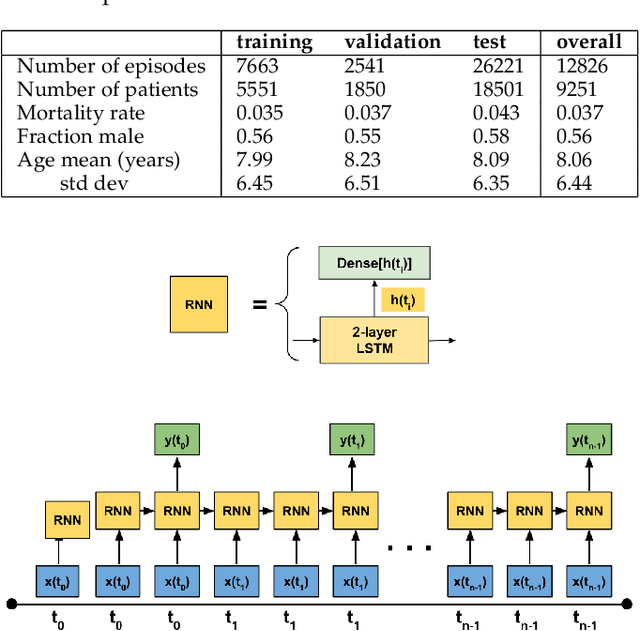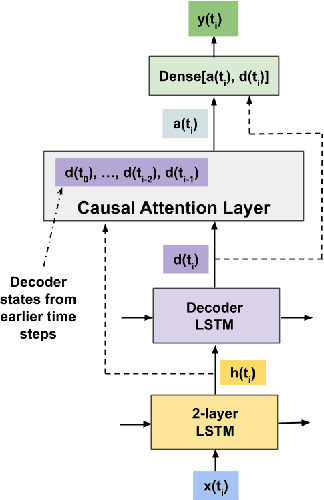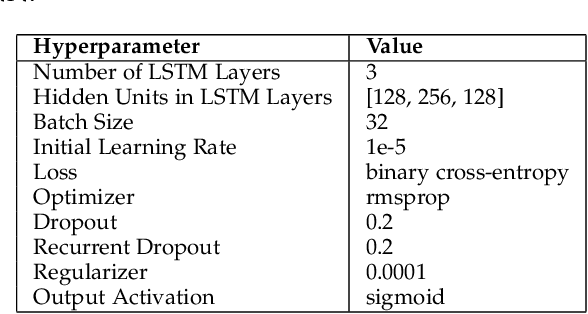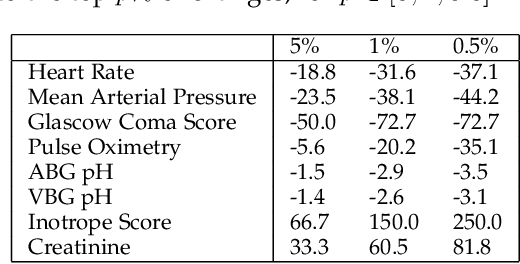Improving Recurrent Neural Network Responsiveness to Acute Clinical Events
Paper and Code
Jul 28, 2020



Predictive models in acute care settings must be able to immediately recognize precipitous changes in a patient's status when presented with data reflecting such changes. Recurrent neural networks (RNNs) have become common for training and deploying clinical decision support models. They frequently exhibit a delayed response to acute events. New information must propagate through the RNN's cell state memory before the total impact is reflected in the model's predictions. This work presents input data perseveration as a method of training and deploying an RNN model to make its predictions more responsive to newly acquired information: input data is replicated during training and deployment. Each replication of the data input impacts the cell state and output of the RNN, but only the output at the final replication is maintained and broadcast as the prediction for evaluation and deployment purposes. When presented with data reflecting acute events, a model trained and deployed with input perseveration responds with more pronounced immediate changes in predictions and maintains globally robust performance. Such a characteristic is crucial in predictive models for an intensive care unit.
 Add to Chrome
Add to Chrome Add to Firefox
Add to Firefox Add to Edge
Add to Edge